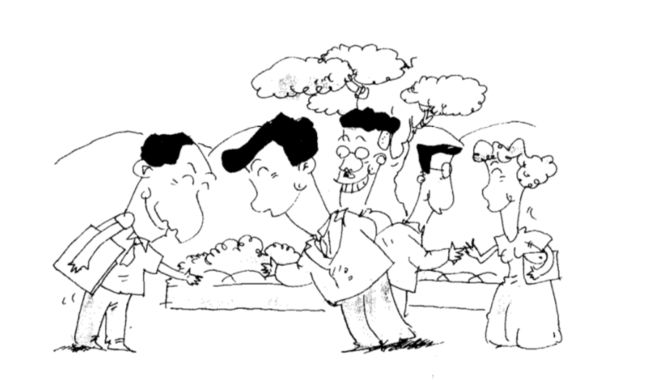- 【入门初级篇】布局类组件的使用(4):模板布局组件
#六脉神剑
低代码myBuilder产品运营
【入门初级篇】布局类组件的使用(4):模板布局组件视频要点(1)模板布局组件的使用介绍:定义静态数据源,定义模板,预览效果点击访问myBuilder产品运营平台CSDN站内资源下载myBuilder交流请加微信:MyBuilder88
- 【入门初级篇】报表基础操作与功能介绍
#六脉神剑
低代码myBuilder产品运营
【入门初级篇】报表的基本操作与功能介绍视频要点(1)报表组件的创建(2)指标组件的使用:一级、二级指标操作演示(3)表格属性设置介绍(4)图表属性设置介绍(5)报表预览:绑定静态数据(6)介绍myBuilder内部模块:用报表低代码开发的示例介绍点击访问myBuilder产品运营平台CSDN站内资源下载myBuilder交流请加微信:MyBuilder88
- 【入门初级篇】布局类组件的使用(3):单据详情布局
#六脉神剑
低代码产品运营myBuilder
【入门初级篇】布局类组件的使用(3):单据详情布局视频要点(1)表单详情布局结束:行容器+表格增加布局边距(2)页签布局的使用点击访问myBuilder产品运营平台CSDN站内资源下载myBuilder交流请加微信:MyBuilder88
- 知汇云创myBuilder产品发布
#六脉神剑
低代码
【入门初级篇】产品介绍v2·前言Hello,大家好,今天给大家介绍一下myBuilder渐进式低代码IDE软件。·产品定位与版本规划myBuilder是一款面向B端数字化领域的低代码开发工具、集成开发环境,具备高效、灵活的使用特点,设计的初心是让B端数字化变得更简单。myBuilder的主要开发套件以及基础功能,我们有专门的培训课程详细讲解,这里先不展开介绍,相信通过我们的教学视频讲解您会逐一发现
- 【入门初级篇】窗体的基本操作与功能介绍
#六脉神剑
低代码
【入门初级篇】窗体的基本操作与功能介绍视频要点(1)窗体的使用场景介绍:模式对话框(2)窗体的创建与设计(3)窗体动态标题设置(4)向窗体添加组件以及相关操作介绍(5)窗体属性编辑介绍(6)窗体数据的使用:组件数据的绑定(7)窗体中3种预览效果介绍点击访问myBuilder产品运营平台CSDN站内资源下载myBuilder交流请加微信:MyBuilder88
- flutter-实现Tabs吸顶的PageView效果
冲浪的鹏多多
Flutterflutterjavascript前端
文章目录1.效果预览2.结构分析3.完整代码4.总结1.效果预览在Flutter开发中,创建具有吸顶Tabs的PageView效果可以极大地提升用户界面的交互性和用户体验。今天,我们就通过一段具体的代码来深入了解如何实现这一功能。效果预览如下:2.结构分析我们从整体上看这段代码,它定义了一个名为CeilingTabsPageView的有状态组件。这个组件的作用就是构建出一个带有吸顶Tabs的页面,
- 大神之路
安卓工匠
程序员的自我修养
首先申明,文章是我在码农网摘过来的,那里没有分享,我感觉程序员也需要鸡汤,或者说这篇文章更应该是一篇一个过来人的经验,以及对我们这些想学计算机或者其他各行各业的人的一个简单的阐述。读完文章后,感觉收获很多,作者说的对,坚持,一鸣惊人需要坚持不断地做一件事。我是前端小学生,每天晚上都会练习代码,并浏览微博,前端路上,有你有我。有的人想成为大牛,却不曾为此努力。有的人辛苦耕耘,却收获寥寥。很多时候,你
- C语言【文件操作】详解上
Run_Teenage
C语言基础c语言开发语言
引言先整体认识一下文件是什么,会打开和关闭文件。关于对文件操作函数在下部分来介绍一、为什么使用文件?如果没有文件,我们写的程序的数据是存储在电脑的内存中,如果程序退出,内存回收,数据就丢失了,等再次运行程序,是看不到上次程序的数据的,如果要将数据进行持久化的保存,我们可以使用文件。二、什么是文件?磁盘(硬盘)上的文件是文件。但是在程序设计中,我们⼀般谈的文件有两种:程序文件、数据文件(从文件功能的
- 挑战20天学完JavaSE第四天——方法的定义、调用和方法重载
呆呆why care
挑战20天学完javaSEjava笔记改行学it程序人生
Java方法是语句的集合,它们在一起执行一个功能。方法是解决一类问题的步骤的有序组合。方法包含于类或对象中。方法在程序中被创建,在其他地方被引用。设计方法的原则:方法的本意是功能块,就是实现某个功能的语句块的集合。我们设计方法的时候,最好保持方法的原子性,就是一个方法只完成1个功能,这样利于我们后期的扩展。方法的命名规则:首字母小写驼峰命名方法的定义Java的方法类似于其它语言的函数,是一段用来完
- LDAP从入门到实战:环境部署与配置指南(下)
磐基Stack专业服务团队
LDAPLDAP
#作者:朱雷接上篇:《LDAP从入门到实战:环境部署与配置指南(上)》链接:link文章目录2.5.添加账号2.6.停止服务2.7.使用TLS证书2.7.1.TLS证书2.7.2.TLS配置2.7.3.服务器配置2.8.使用安全连接的反向代理2.5.添加账号添加管理员账号配置文件[root@localhostopenldap]#catadmin.ldifdn:dc=zltest,dc=comobj
- 一篇文带你了解Go 1.24最新版本有趣的变化
磐基Stack专业服务团队
golangspring后端
#作者:曹付江文章目录前言1.语言特性更新1.1泛型类型别名:你的代码终于不再「绕口」了!2.工具链更新2.1引入tool指令,goget终于知道哪些是工具了2.2构建缓存优化,gorun变聪明了,不再瞎忙活2.3JSON输出改进,gobuild-json:构建日志终于能「看懂」了3.性能优化3.1运行时性能提升3.2cgo优化,cgo更快了,调用C代码更流畅3.3WebAssembly(Wasm
- Pandas库中pd.to_datetime()函数用法详细介绍
Pythoner研习社
零基础学pythonpandaspython开发语言
pd.to_datetime()是Pandas库中用来将日期和时间字符串转换为日期时间对象的一个非常有用的函数,常用它进行时间上的计算和数据分析。1功能简介在Pandas中,pd.to_datetime()函数可以接收多种格式的日期时间字符串、列表、数组或者Pandas的Series对象,然后将它们转换成Pandas的datetime64类型。转换后的数据可以更好地与Pandas的日期时间功能集成
- 《颠覆传统,用Web3.0技术手撸一个去中心化微博(含完整代码)》
煜bart
web3人工智能区块链
一、为什么你的下一个项目必须拥抱Web3.0?传统互联网正面临三大致命伤:-用户数据被巨头垄断(某浪删帖事件频发)-单点故障导致服务瘫痪(某云宕机损失过亿)-创作者收益被平台榨取(某音抽成高达70%)**Web3.0的破局方案:**-✅数据永久存储在IPFS/Arweave-✅智能合约自动分配收益-✅抗审查的链上内容存证---###二、核心技术栈揭秘(附对比图表)|技术|传统方案|Web3.0方案
- 在html中图像标签是什么意思,在html中图像标签是什么意思
李白涛
在html中图像标签是什么意思
在html中图像标签是指用于定义图像的标签,即“”标签。img元素可以向网页中嵌入一幅图像,“”标签的作用是为被引用的图像创建占位符,将图像链接到HTML页面上。本教程操作环境:windows7系统、CSS3&&HTML5版、DellG3电脑。在html中图像标签是指用于定义图像的标签,即“”标签。HTML标签标签定义HTML页面中的图像。标签有两个必需的属性:src和alt。注释:从技术上讲,图
- HTML网页图像标签
齐天大荒
HTMLhtml前端css
HTML网页图像标签常见的图像格式JPGGIFPNGBMP…一、标签的定义及用法在html中,标签是使用来在网页中嵌入一幅图像。从技术上讲,图像并不是插入到网页中,而是链接到网页中,标签的作用是为被引用的图像创建占位符。标签在网页中很常用,比如,引入一个logo图片、按钮背景图片、工具图标等等。只要是有图片的地方,源代码中基本都有标签(除一些背景图片以外)。二、标签语法格式说明:src属性是用来指
- 记录 macOS 上使用 Homebrew 安装的软件
獨梟
#macOS软件安装配置macos
Homebrew是macOS上最受欢迎的软件包管理器之一,能够轻松安装各种命令行工具和GUI应用。本文记录了我通过Homebrew安装的各种软件,并对它们的用途和基本使用方法进行介绍。Homebrew介绍Homebrew是一个开源的包管理器,可以让macOS用户方便地安装和管理各种命令行工具和GUI应用。安装Homebrew后,可以使用brewinstall命令安装各种工具。安装Homebrew:
- 使用Aim追踪LangChain执行
bavDHAUO
langchainpython
在现代人工智能应用中,调试和可视化自动化工作流变得越来越重要,Aim正是为此而生。通过Aim,你可以轻松地追踪LangChain中语言模型(LLM)和工具的输入输出,以及代理的动作,从而在执行过程中快速定位和解决问题。此外,Aim还支持并排比较多个执行流程,使之成为调试中的得力助手。Aim是一个完全开源的项目,你可以在GitHub上找到更多关于Aim的信息。在本文中,我们将展示如何启用和配置Aim
- 探究Three.js中模型移动与旋转的交互逻辑
Front_Yue
3D技术实践指南javascriptthree.js3d
前言Three.js作为一个功能强大的JavaScript3D库,极大地简化了在网页上创建和展示3D图形的过程。它在游戏开发、产品展示、虚拟现实等众多领域都被广泛应用。通过Three.js,开发者能够轻松创建出复杂的三维场景和交互性强的3D应用,为用户带来沉浸式的体验。一、模型移动的交互逻辑实现(一)键盘控制模型移动利用键盘事件来控制模型在三维空间中的位置移动,是一种常见且便捷的交互方式。以下为具
- Kubernetes学习笔记-移除Nacos迁移至K8s
人生偌只如初见
KubernetesJ2EEkubernetesk8sjava
项目服务的配置管理和服务注册发现由原先的Nacos全面迁移到Kubernetes上。一、移除Nacos移除Nacos组件依赖。com.alibaba.cloudspring-cloud-starter-alibaba-nacos-discoverycom.alibaba.cloudspring-cloud-starter-alibaba-nacos-configorg.springframewor
- 大二下开始学数据结构与算法--07,单项循环链表的实现
爱我的你不说话
链表数据结构
自习所完成的任务单向循环链表代码的实现和测验任务学课程到p28复现相关代码感悟其实这个教程上的观念,跟我刚开始理解想的并不一样,我以为会是:头节点使实例化的节点的循环链表,但是,教程给的更像是存在头节点,但头节点没有实际意义的添加了尾节点单项循环链表(跟之前单向不循环链表相比,更像是只多了一尾节点)。#include#include#includeusingnamespacestd;//存在头节点
- Java基础笔记(小白友好版)
代码什么的真不会呀
java笔记开发语言
Java基础笔记(小白友好版)1.Java简介Java是一种广泛使用的计算机编程语言,由詹姆斯·高斯林(JamesGosling)在1995年创建Java的口号是"一次编写,到处运行"(WriteOnce,RunAnywhere)Java程序需要先编译成字节码(.class文件),然后在Java虚拟机(JVM)上运行主要特点:面向对象:一切皆对象,代码更清晰易懂平台无关性:可以在Windows、M
- asp.net mvc mysql 开源项目_【开源项目SugarSite】ASP.NET MVC+ Layui+ SqlSugar+RestSharp项目讲解...
weixin_39805732
asp.netmvcmysql开源项目
SugarSite一个前端支持移动端的企业网站,目前只支持了简单功能,后续还会加上论坛等。源码GIT地址:技术介绍Layui个人而言不喜欢引用一堆东西,越简洁越好,layui正好能够满足我的这种需求,它是一款轻量级UI,JS部分都是采用模块化设计(AMD),对移动端支持比较不错。唯一不足是目前支持的组件有些少,需要有一定前端扩展能力的人才可以顺心使用。用法:例如我想用form.js和uploda.
- 移动端网页布局注意事项及解决 1.winphone系统a、input标签被点击时产生的半透明灰色背景怎么去掉
Ailsa-show
移动端网页布局注意事项及解决1.winphone系统a、input标签被点击时产生的半透明灰色背景怎么去掉1、关闭iOS键盘首字母自动大写2、禁止文本缩放html{-webkit-text-size-adjust:100%;}3、移动端如何清除输入框内阴影在iOS上,输入框默认有内部阴影,但无法使用box-shadow来清除,如果不需要阴影,可以这样关闭:input,textarea{border
- istio 介绍-01-一个用于连接、管理和保护微服务的开放平台 概览
后端java
istioistio一个用于连接、管理和保护微服务的开放平台。介绍Istio是一个开放平台,用于提供统一的方式来集成微服务、管理跨微服务的流量、执行策略和聚合遥测数据。Istio的控制平面在底层集群管理平台(例如Kubernetes)上提供了一个抽象层。Istio由以下组件组成:Envoy-每个微服务的Sidecar代理,用于处理集群中服务之间以及从服务到外部服务的入口/出口流量。这些代理形成了一
- 【C++】Vector和List的区别
信手斩龙
C++
在学习stl的时候,总是有同学分不清楚Vector和List的使用,在这里我总结一下它们的区别和使用方法。一、底层结构 vector的底层结构是动态顺序表,在内存中是一段连续的空间。 list的底层结构是带头节点的双向循环链表,在内存中不是一段连续的空间。二、支持随机访问 vector支持随机访问,可以利用下标精准定位到一个元素上,访问某个元素的时间复杂度是O(1)。 list不支持随机访问,要
- 鸿蒙开发秘籍:用AvPlayer解锁录音朗读新玩法
柳中仙
鸿蒙HarmonyOSharmonyos华为
鸿蒙开发秘籍:用AvPlayer解锁录音朗读新玩法一、引言家人们,在鸿蒙应用开发这个超广阔的领域里,音频处理可是相当重要的一环!它让应用的功能更丰富,用户体验也更好啦。像社交类应用里收发语音消息,教育类应用播放有声读物,还有音乐类应用的核心播放功能,都离不开音频处理。通过有效的音频处理,应用能和用户互动得更生动、更直接,用户用的时候既能享受听觉上的快乐,又觉得方便,应用的吸引力和实用性一下子就提升
- 【问题解决】Matlab和arduino连接,最后一步test失败
CSHprogram
matlab连接arduinomatlabarduino
查找了一天的matlab与arduino的连接方法总体来讲分成两类:1,用下载帖子上的arduinoio的文件夹,将ide的文件烧录进入板子中,然后将matlab的文件路径设置到arduinoio的文件夹下,最后运行的程序还有一些函数都是在文件夹中的arduino.m文件中,自行查找参考帖子Matlab和Arduino通信2.还有一种就是下载matlab中的硬件支持包,本人使用个人账户登录的也能轻
- 【C++】priority_queue的使用及模拟实现(含仿函数介绍)
梓䈑
C++学习c++开发语言
文章目录前言一、priority_queue的介绍二、priority_queue的使用三、仿函数四、priority_queue的模拟实现前言一、priority_queue的介绍(优先级队列是默认使用vector作为其底层存储数据的容器适配器,在vector上又使用了堆算法将vector中元素构造成堆的结构,因此priority_queue就是堆)二、priority_queue的使用及模拟实
- 大二下开始学数据结构与算法--06,判断两个节点是否相交,删除链表倒数第K个节点
爱我的你不说话
链表数据结构
自习所完成的任务完成函数判断单项链表是否相交的代码编写和测试。完成函数删除倒数第K个节点的代码编写和测试。感悟其实这篇是昨天晚上写的,但是昨天下午在实验室呆了一下,然后写完这些代码后感觉脑袋昏沉,晚上十点就回宿舍了,想着看会儿书,但是,没看成,还是玩手机了。感觉坚持做一件事,还挺难的,老是为自己找逃避的借口,比如说周三晚上跟舍友出去吃,就放下了写代码的每日任务。我在想,是不是应该改变一下观念,以进
- 黄金屋 #2 我应该将产品开源吗?
_tison
开源
“开源”(Open-Source),如同“自由软件”(FreeSoftware)一样,凭借其有意为之的模糊赢得了广泛传播。泛泛而谈开源,甚至是将所谓开源硬件、开源文档、开放设计等都归入开源的范畴,很容易丧失焦点。本文不讨论任意个体或组织开发的任意软件是否应该开源,而是聚焦在企业研发的商业软件产品应当采取的开源策略。从著名的《大教堂与集市》文集当中第四篇《魔法锅》开始。其中4.6节“闭源的理由”写到
- Spring4.1新特性——Spring MVC增强
jinnianshilongnian
spring 4.1
目录
Spring4.1新特性——综述
Spring4.1新特性——Spring核心部分及其他
Spring4.1新特性——Spring缓存框架增强
Spring4.1新特性——异步调用和事件机制的异常处理
Spring4.1新特性——数据库集成测试脚本初始化
Spring4.1新特性——Spring MVC增强
Spring4.1新特性——页面自动化测试框架Spring MVC T
- mysql 性能查询优化
annan211
javasql优化mysql应用服务器
1 时间到底花在哪了?
mysql在执行查询的时候需要执行一系列的子任务,这些子任务包含了整个查询周期最重要的阶段,这其中包含了大量为了
检索数据列到存储引擎的调用以及调用后的数据处理,包括排序、分组等。在完成这些任务的时候,查询需要在不同的地方
花费时间,包括网络、cpu计算、生成统计信息和执行计划、锁等待等。尤其是向底层存储引擎检索数据的调用操作。这些调用需要在内存操
- windows系统配置
cherishLC
windows
删除Hiberfil.sys :使用命令powercfg -h off 关闭休眠功能即可:
http://jingyan.baidu.com/article/f3ad7d0fc0992e09c2345b51.html
类似的还有pagefile.sys
msconfig 配置启动项
shutdown 定时关机
ipconfig 查看网络配置
ipconfig /flushdns
- 人体的排毒时间
Array_06
工作
========================
|| 人体的排毒时间是什么时候?||
========================
转载于:
http://zhidao.baidu.com/link?url=ibaGlicVslAQhVdWWVevU4TMjhiKaNBWCpZ1NS6igCQ78EkNJZFsEjCjl3T5EdXU9SaPg04bh8MbY1bR
- ZooKeeper
cugfy
zookeeper
Zookeeper是一个高性能,分布式的,开源分布式应用协调服务。它提供了简单原始的功能,分布式应用可以基于它实现更高级的服务,比如同步, 配置管理,集群管理,名空间。它被设计为易于编程,使用文件系统目录树作为数据模型。服务端跑在java上,提供java和C的客户端API。 Zookeeper是Google的Chubby一个开源的实现,是高有效和可靠的协同工作系统,Zookeeper能够用来lea
- 网络爬虫的乱码处理
随意而生
爬虫网络
下边简单总结下关于网络爬虫的乱码处理。注意,这里不仅是中文乱码,还包括一些如日文、韩文 、俄文、藏文之类的乱码处理,因为他们的解决方式 是一致的,故在此统一说明。 网络爬虫,有两种选择,一是选择nutch、hetriex,二是自写爬虫,两者在处理乱码时,原理是一致的,但前者处理乱码时,要看懂源码后进行修改才可以,所以要废劲一些;而后者更自由方便,可以在编码处理
- Xcode常用快捷键
张亚雄
xcode
一、总结的常用命令:
隐藏xcode command+h
退出xcode command+q
关闭窗口 command+w
关闭所有窗口 command+option+w
关闭当前
- mongoDB索引操作
adminjun
mongodb索引
一、索引基础: MongoDB的索引几乎与传统的关系型数据库一模一样,这其中也包括一些基本的优化技巧。下面是创建索引的命令: > db.test.ensureIndex({"username":1}) 可以通过下面的名称查看索引是否已经成功建立: &nbs
- 成都软件园实习那些话
aijuans
成都 软件园 实习
无聊之中,翻了一下日志,发现上一篇经历是很久以前的事了,悔过~~
断断续续离开了学校快一年了,习惯了那里一天天的幼稚、成长的环境,到这里有点与世隔绝的感觉。不过还好,那是刚到这里时的想法,现在感觉在这挺好,不管怎么样,最要感谢的还是老师能给这么好的一次催化成长的机会,在这里确实看到了好多好多能想到或想不到的东西。
都说在外面和学校相比最明显的差距就是与人相处比较困难,因为在外面每个人都
- Linux下FTP服务器安装及配置
ayaoxinchao
linuxFTP服务器vsftp
检测是否安装了FTP
[root@localhost ~]# rpm -q vsftpd
如果未安装:package vsftpd is not installed 安装了则显示:vsftpd-2.0.5-28.el5累死的版本信息
安装FTP
运行yum install vsftpd命令,如[root@localhost ~]# yum install vsf
- 使用mongo-java-driver获取文档id和查找文档
BigBird2012
driver
注:本文所有代码都使用的mongo-java-driver实现。
在MongoDB中,一个集合(collection)在概念上就类似我们SQL数据库中的表(Table),这个集合包含了一系列文档(document)。一个DBObject对象表示我们想添加到集合(collection)中的一个文档(document),MongoDB会自动为我们创建的每个文档添加一个id,这个id在
- JSONObject以及json串
bijian1013
jsonJSONObject
一.JAR包简介
要使程序可以运行必须引入JSON-lib包,JSON-lib包同时依赖于以下的JAR包:
1.commons-lang-2.0.jar
2.commons-beanutils-1.7.0.jar
3.commons-collections-3.1.jar
&n
- [Zookeeper学习笔记之三]Zookeeper实例创建和会话建立的异步特性
bit1129
zookeeper
为了说明问题,看个简单的代码,
import org.apache.zookeeper.*;
import java.io.IOException;
import java.util.concurrent.CountDownLatch;
import java.util.concurrent.ThreadLocal
- 【Scala十二】Scala核心六:Trait
bit1129
scala
Traits are a fundamental unit of code reuse in Scala. A trait encapsulates method and field definitions, which can then be reused by mixing them into classes. Unlike class inheritance, in which each c
- weblogic version 10.3破解
ronin47
weblogic
版本:WebLogic Server 10.3
说明:%DOMAIN_HOME%:指WebLogic Server 域(Domain)目录
例如我的做测试的域的根目录 DOMAIN_HOME=D:/Weblogic/Middleware/user_projects/domains/base_domain
1.为了保证操作安全,备份%DOMAIN_HOME%/security/Defa
- 求第n个斐波那契数
BrokenDreams
今天看到群友发的一个问题:写一个小程序打印第n个斐波那契数。
自己试了下,搞了好久。。。基础要加强了。
&nbs
- 读《研磨设计模式》-代码笔记-访问者模式-Visitor
bylijinnan
java设计模式
声明: 本文只为方便我个人查阅和理解,详细的分析以及源代码请移步 原作者的博客http://chjavach.iteye.com/
import java.util.ArrayList;
import java.util.List;
interface IVisitor {
//第二次分派,Visitor调用Element
void visitConcret
- MatConvNet的excise 3改为网络配置文件形式
cherishLC
matlab
MatConvNet为vlFeat作者写的matlab下的卷积神经网络工具包,可以使用GPU。
主页:
http://www.vlfeat.org/matconvnet/
教程:
http://www.robots.ox.ac.uk/~vgg/practicals/cnn/index.html
注意:需要下载新版的MatConvNet替换掉教程中工具包中的matconvnet:
http
- ZK Timeout再讨论
chenchao051
zookeepertimeouthbase
http://crazyjvm.iteye.com/blog/1693757 文中提到相关超时问题,但是又出现了一个问题,我把min和max都设置成了180000,但是仍然出现了以下的异常信息:
Client session timed out, have not heard from server in 154339ms for sessionid 0x13a3f7732340003
- CASE WHEN 用法介绍
daizj
sqlgroup bycase when
CASE WHEN 用法介绍
1. CASE WHEN 表达式有两种形式
--简单Case函数
CASE sex
WHEN '1' THEN '男'
WHEN '2' THEN '女'
ELSE '其他' END
--Case搜索函数
CASE
WHEN sex = '1' THEN
- PHP技巧汇总:提高PHP性能的53个技巧
dcj3sjt126com
PHP
PHP技巧汇总:提高PHP性能的53个技巧 用单引号代替双引号来包含字符串,这样做会更快一些。因为PHP会在双引号包围的字符串中搜寻变量, 单引号则不会,注意:只有echo能这么做,它是一种可以把多个字符串当作参数的函数译注: PHP手册中说echo是语言结构,不是真正的函数,故把函数加上了双引号)。 1、如果能将类的方法定义成static,就尽量定义成static,它的速度会提升将近4倍
- Yii框架中CGridView的使用方法以及详细示例
dcj3sjt126com
yii
CGridView显示一个数据项的列表中的一个表。
表中的每一行代表一个数据项的数据,和一个列通常代表一个属性的物品(一些列可能对应于复杂的表达式的属性或静态文本)。 CGridView既支持排序和分页的数据项。排序和分页可以在AJAX模式或正常的页面请求。使用CGridView的一个好处是,当用户浏览器禁用JavaScript,排序和分页自动退化普通页面请求和仍然正常运行。
实例代码如下:
- Maven项目打包成可执行Jar文件
dyy_gusi
assembly
Maven项目打包成可执行Jar文件
在使用Maven完成项目以后,如果是需要打包成可执行的Jar文件,我们通过eclipse的导出很麻烦,还得指定入口文件的位置,还得说明依赖的jar包,既然都使用Maven了,很重要的一个目的就是让这些繁琐的操作简单。我们可以通过插件完成这项工作,使用assembly插件。具体使用方式如下:
1、在项目中加入插件的依赖:
<plugin>
- php常见错误
geeksun
PHP
1. kevent() reported that connect() failed (61: Connection refused) while connecting to upstream, client: 127.0.0.1, server: localhost, request: "GET / HTTP/1.1", upstream: "fastc
- 修改linux的用户名
hongtoushizi
linuxchange password
Change Linux Username
更改Linux用户名,需要修改4个系统的文件:
/etc/passwd
/etc/shadow
/etc/group
/etc/gshadow
古老/传统的方法是使用vi去直接修改,但是这有安全隐患(具体可自己搜一下),所以后来改成使用这些命令去代替:
vipw
vipw -s
vigr
vigr -s
具体的操作顺
- 第五章 常用Lua开发库1-redis、mysql、http客户端
jinnianshilongnian
nginxlua
对于开发来说需要有好的生态开发库来辅助我们快速开发,而Lua中也有大多数我们需要的第三方开发库如Redis、Memcached、Mysql、Http客户端、JSON、模板引擎等。
一些常见的Lua库可以在github上搜索,https://github.com/search?utf8=%E2%9C%93&q=lua+resty。
Redis客户端
lua-resty-r
- zkClient 监控机制实现
liyonghui160com
zkClient 监控机制实现
直接使用zk的api实现业务功能比较繁琐。因为要处理session loss,session expire等异常,在发生这些异常后进行重连。又因为ZK的watcher是一次性的,如果要基于wather实现发布/订阅模式,还要自己包装一下,将一次性订阅包装成持久订阅。另外如果要使用抽象级别更高的功能,比如分布式锁,leader选举
- 在Mysql 众多表中查找一个表名或者字段名的 SQL 语句
pda158
mysql
在Mysql 众多表中查找一个表名或者字段名的 SQL 语句:
方法一:SELECT table_name, column_name from information_schema.columns WHERE column_name LIKE 'Name';
方法二:SELECT column_name from information_schema.colum
- 程序员对英语的依赖
Smile.zeng
英语程序猿
1、程序员最基本的技能,至少要能写得出代码,当我们还在为建立类的时候思考用什么单词发牢骚的时候,英语与别人的差距就直接表现出来咯。
2、程序员最起码能认识开发工具里的英语单词,不然怎么知道使用这些开发工具。
3、进阶一点,就是能读懂别人的代码,有利于我们学习人家的思路和技术。
4、写的程序至少能有一定的可读性,至少要人别人能懂吧...
以上一些问题,充分说明了英语对程序猿的重要性。骚年
- Oracle学习笔记(8) 使用PLSQL编写触发器
vipbooks
oraclesql编程活动Access
时间过得真快啊,转眼就到了Oracle学习笔记的最后个章节了,通过前面七章的学习大家应该对Oracle编程有了一定了了解了吧,这东东如果一段时间不用很快就会忘记了,所以我会把自己学习过的东西做好详细的笔记,用到的时候可以随时查找,马上上手!希望这些笔记能对大家有些帮助!
这是第八章的学习笔记,学习完第七章的子程序和包之后
